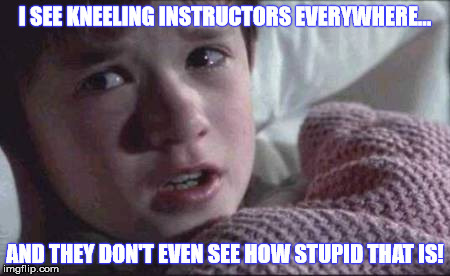I have to agree with the idea of promoting and taking divers on dives one level above their current certified level, in a training environment. Without that ow's could not cross the 60' depth in persuit of AOW. The concept has its place. I personally have a line drawn between rec diving catagory dives and technical catagory of dives. Those catagory boundry's should not be able to be freely crossed. I know , I know but there are those that do not believe in limits and that the basic OW card is good to 130 ft and therefore a dive with an instructor to 150 is not a problem. As cave goes the cavern course should be considered the same as OW training. An technical category entry point course in which cave entry can not be done without outside of training leading to certification. I have had no problem with rec classes promoting follow on courses because they promote increased skils and compitance with in the diving area of 0-130 rather than promoting more dangerous technical styles of diving. Likewise I would have no problem promoting follow on training classes in the field of current training should also be acceptable. You cant very well say I cant talk about the intro course cause you are only in cavern. I have much less concern about technical courses than that of rec courses because when you are in the tech arena you probably understand just how invincible you are not.
Then again I see rec diving a multistep category ow/aow/deep to 130. As such I would not consider taking an OW to 120' as prudent. Would I take an aow to 120, YES.
Then again I see rec diving a multistep category ow/aow/deep to 130. As such I would not consider taking an OW to 120' as prudent. Would I take an aow to 120, YES.





